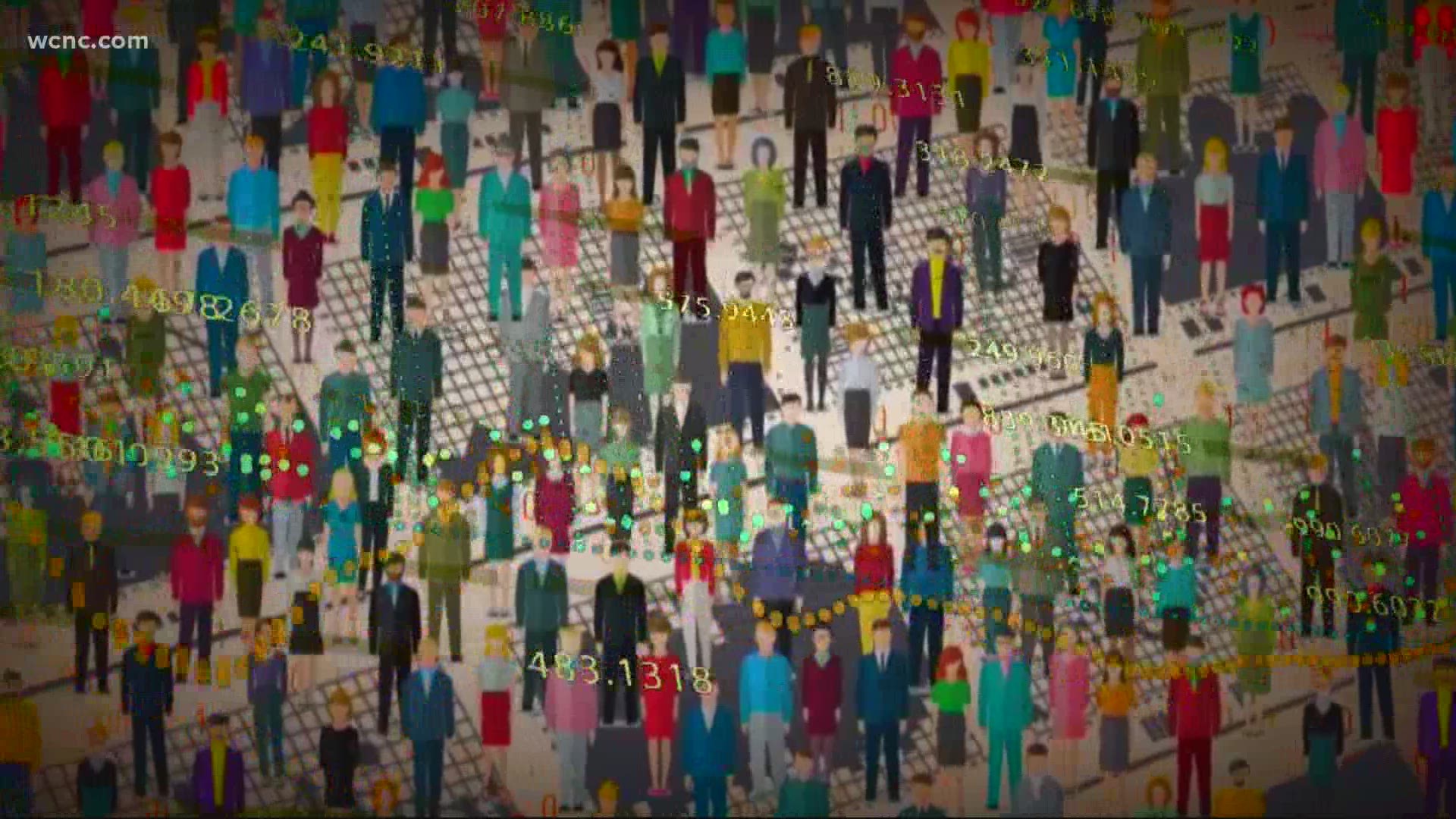CHARLOTTE, N.C. — Americans have already lost more than $300 million in stimulus scams, according to the Federal Trade Commission (FTC) and with another round of checks likely to start going out next month, crooks will again be trying to intercept your money.
The FTC says scammers are using people's personal information to make their ploy sound legitimate.
"These scams around COVID stimulus checks, coronavirus, are being undertaken by hackers and scammers in a more sophisticated way because they have easy, cheap access to more of our personal information," said Rob Shavell, a data privacy security expert.
Shavell is a co-founder and the CEO of DeleteMe, a service that helps remove people’s personal information from the internet. He's been advocating for federal data privacy regulation for over a decade.
“Unfortunately, it's just too easy to google somebody's personal information now, buy it for 99 cents from a data broker, and go do something with it," Shavell said. "I can find out somebody's date of birth, I can find out their company, I can find out their mother's maiden name, their employer, their past employer, their past addresses, email and phone."
Shavell said scammers are using that information to convince people they're with a legitimate government agency, or even that person's employer. They will offer to help them deposit their stimulus check, only to steal the money instead.
The FTC reports that at least $300 million has been stolen that way. Shavell believes that's just a drop in the bucket.
"That is actually just the people that complain by filing a report to the FTC," Shavell said. "Our estimate is the amount of actual loss is probably 10 times that. It's probably $3 billion, not $300 million.
"You can create a better scam when you have better data. The more personal it is and it sounds, the more believable it can be."
Where are the crooks getting all this info on you? Shavell says data brokers collect and sell people's personal information. They give it to businesses, advertisers, and yes, individuals. This can include the bad guys.
The brokers gather that information by not only tracking your digital footprint, but also by legally buying it from state entities.
For example, in 2020, the North Carolina Department of Motor Vehicles sold millions of people's driver's license information to 21 third-party companies and nearly 230,000 individuals. They made nearly $41.5 million doing it.
And no, you can't opt-out.
"It is unbelievable that all of these institutions and DMVs across every state are able to sell our data, make money from it without us having a say in it," Shavell said. “That's why we need a combination of legislation and technology to enable that legislation and make it easier for people to control their data because it's our data. It's not somebody else's.”
It's possible to get your personal information removed from data broker sites. Shavell's company does it for a fee but they also offer a free guide on how to do it yourself.
“Try to use a tracker blocker or an ad blocker in your browser, it just stops the leaking of a lot of the websites that you visit to different parties that end up selling that data to these data brokers," Shavell suggested.
In the meantime, be wary of anyone who asks for your banking information, even if they seem to know all about you.
"The new round of stimulus, we want people to be very careful," Shavell said.


